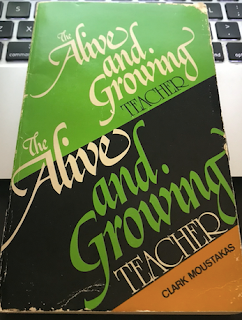How do teachers and students feel about grades? Continuing A 60-year-old Conversation
I hate grading students. In my opinion, grading inhibits learning. In the book Life Beyond Grades, published by Cambridge University Press (this press makes academics' eyes widen), authors explain that grades kill intrinsic motivation.
At best, learning is a process that never ends. Periods of reflection are helpful to this process, because they ask you to acknowledge where you have been and where you are going. Reflection is helpful for reevaluating goals and how well your methods for achieving those goals seem to be working out. As I have explained before in faculty workshops, and may get around to explaining on this website, this reflection process is an important part of ASSESSMENT, which is about personal and system improvement. Grading, however, is a normalizing judgment made by one person about another person.
Imagine receiving a grade for your parenting or marriage skills. Your evaluator holds a master's degree in human development, with a thesis written on the engagement rituals of indigenous people of British Columbia (or something equally esoteric). Would you trust that this person values the same things that you value when it comes to parenting or marriage? Would a grade of A or B or C be helpful to you in your quest to become a better parent or spouse? And so on. I suspect that you would find a grade about as useful as an advertisement for a 5K stuck beneath your windshield-wiper blade.
I came across the following dialogue between Clark Moustakas, then clinical professor and educator in Michigan, and a group of elementary school teachers. The conversation took place sometime before 1959, which is when the book, The Alive and Growing Teacher, was first published.
In the below excerpt, Clark Moustakas has just asked a group of teachers for their opinion about giving students grades. The result is a revealing and poignant discussion about the relative worthlessness of grades. (Pronouns have been changed for gender neutrality.)
Mrs. Dase: I want to say something about grades. Grades are always used to compare one person with another, never in terms of the child [themselves]. I hate to answer the question, “How does he do in relation to other children?” I suppose you have to tell parents and others to get along with them. But it seems to me that people should think of a child in terms of what [they themselves] are doing.
Mrs. Sall: Why couldn’t we just write letters home telling what the child is doing, not in comparison to anyone else?
Mrs. Dase: But parents seem to prefer letter grades. […]
Mrs. Shawn: I think it would be interesting to ask the children what they’d like.
Mrs. Allen: I have. They want A, B, C, D, E. Even the ones rated the lowest.
Mrs. Cone: Very few of the children wanted no grades at all and only about two per cent of the parents.
Miss Whet: How many here would vote for no grades at all?
(All teachers raise hands.)
Here is what Moustakas says in commentary:
Several teachers felt that pitting one child against another developed competitive ability and helped the strong to grown and thrive. […] The majority of teachers believe that competition is based on cultural values and conditions while cooperation is a natural impulse in human life.
I used to feel that grades were one of the most important things. I was raised that way. So, I initially began raising my daughter that way. I encouraged and pushed the best grades possible. Yet, I started to realize that everyone has different levels of aptitude. I also saw my daughter so stressed over grades. It seemed that she often times second-guessed herself and overthought things. Too much pressure for the highest grades seem to give anxiety to her. Upon discussing it with her I realized that I would much rather my child learn and be able to apply what she learns to life than have the best grades.


This comment has been removed by the author.
ReplyDelete